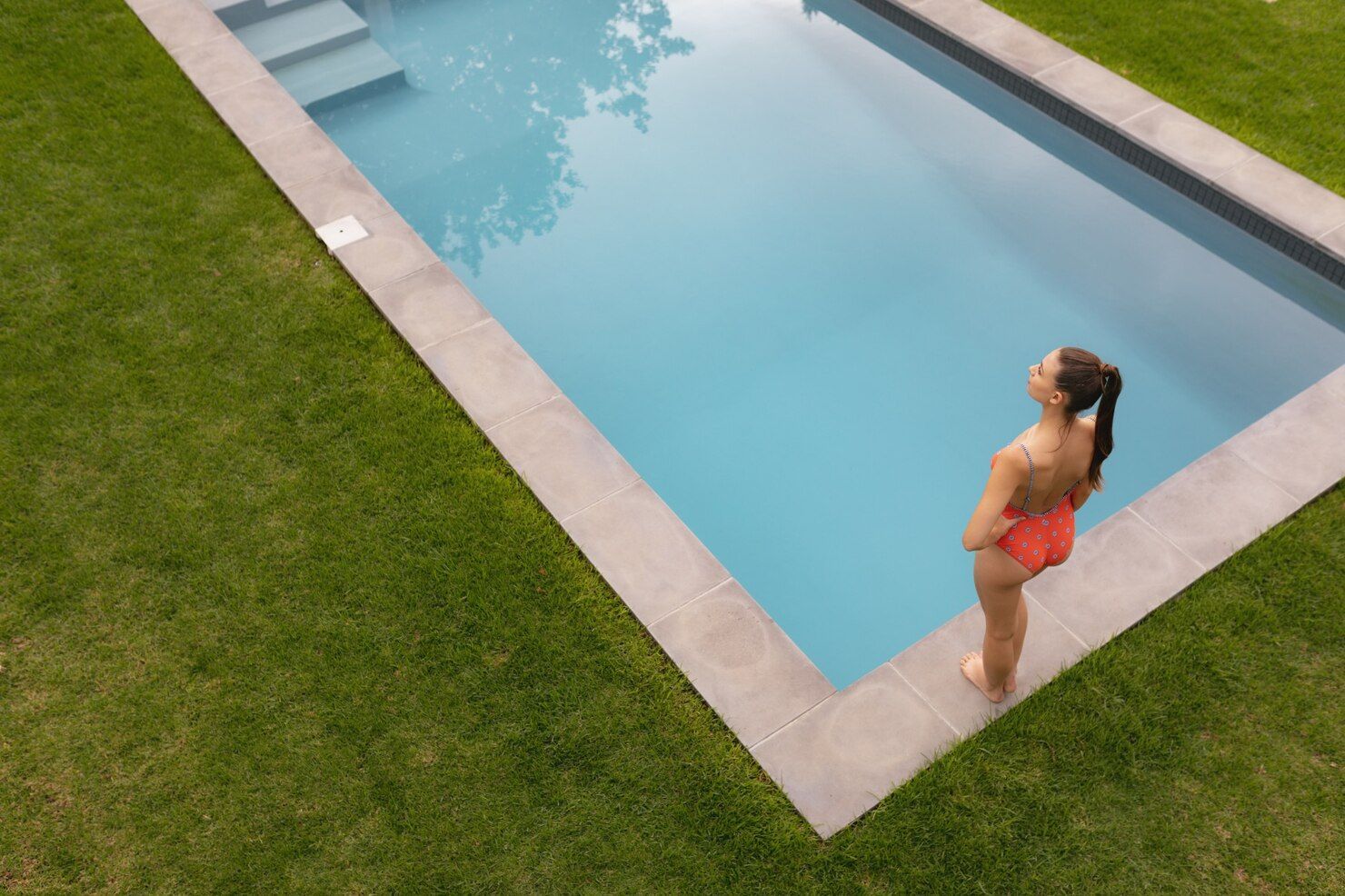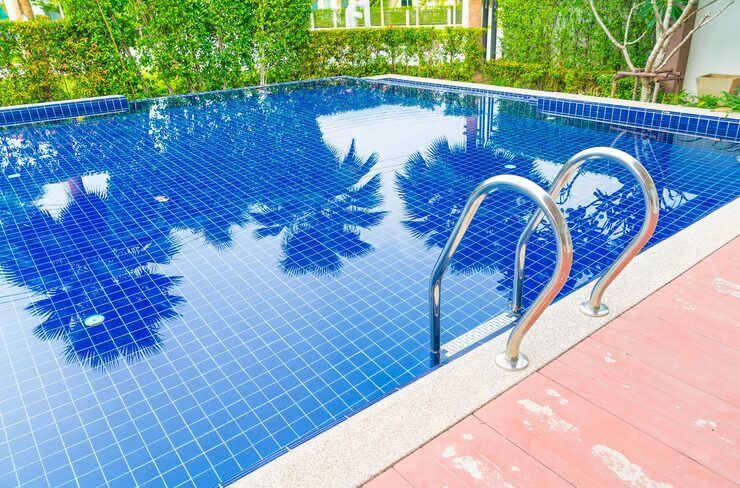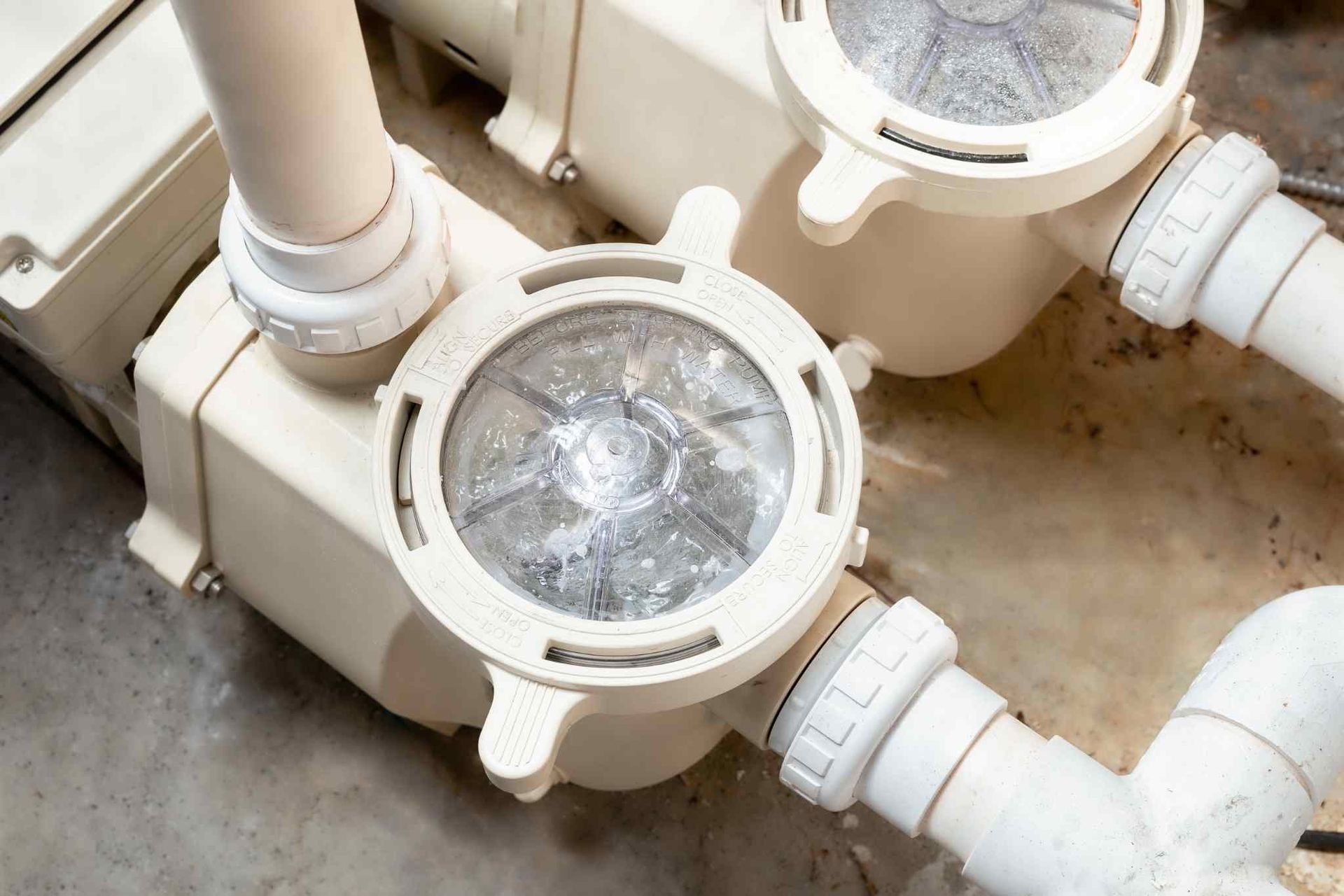Pros and Cons of Salt Water Pool vs. Chlorine
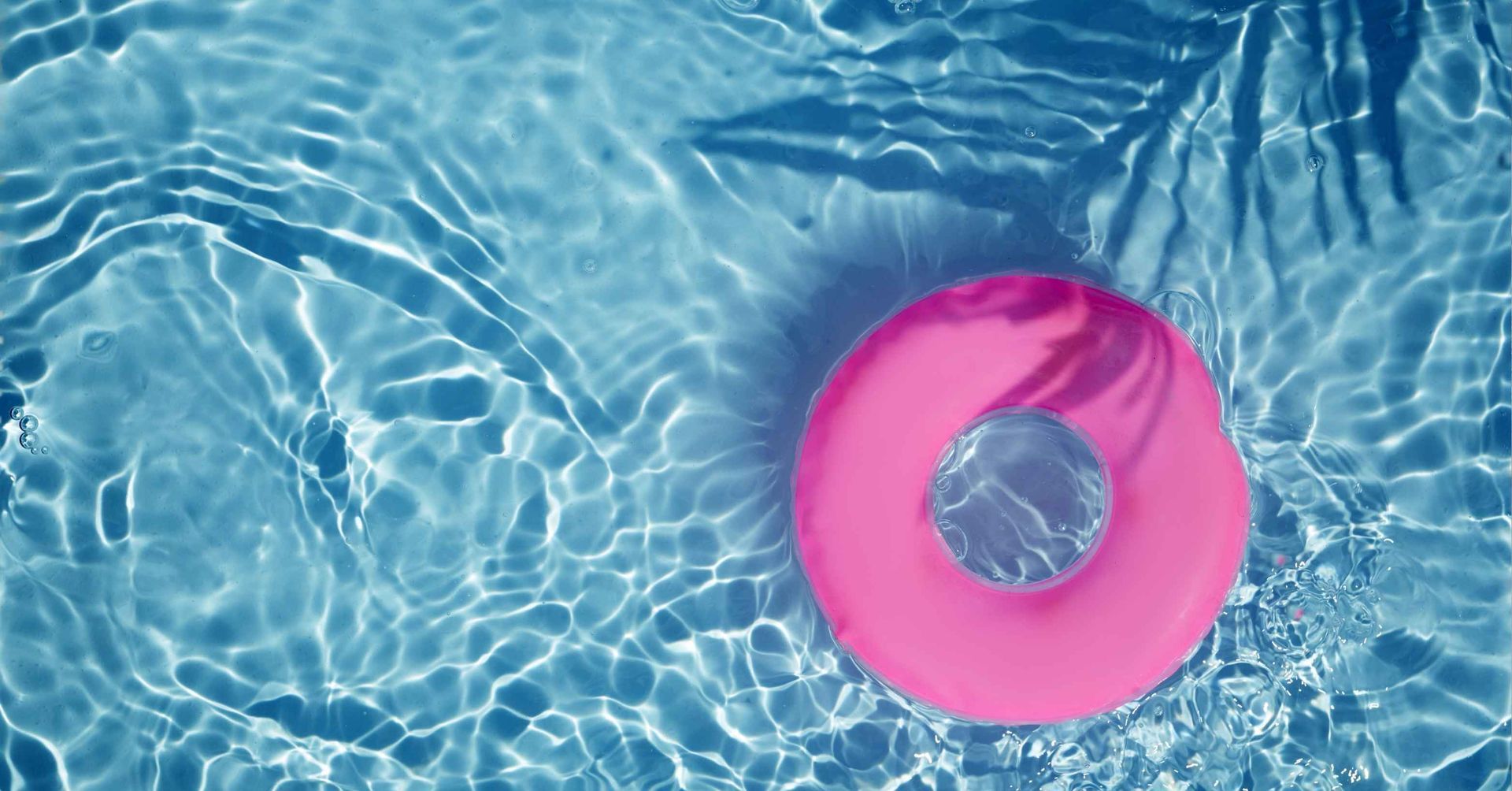
Swimming pools have long been a centerpiece of leisure, but the way they’re maintained has changed as owners weigh tradition against innovation. The conversation often comes down to a salt water pool vs chlorine, with each system offering distinct advantages in cost, comfort, and upkeep. While chlorine has been the standard for decades, the rise of salt water systems reflects a shift toward softer water experiences and reduced chemical handling.
Here are the key pros and cons that highlight what each option brings to the table.
Table of Contents
Key Takeaways
✔ A salt water pool vs chlorine system both rely on chlorine but deliver it in different ways.
✔ Chlorine pools are affordable upfront but require ongoing chemical handling.
✔ Salt water pools provide softer water and reduced irritation for swimmers.
✔ One major benefit of salt water pool setups is consistent chlorine levels with less odor.
✔ Chlorine remains widely used because of its proven effectiveness and availability.
✔ Understanding why pools have chlorine highlights its role as the standard for sanitation.
✔ Maintenance costs differ: chlorine pools demand frequent chemical purchases, while salt systems require higher installation costs but fewer chemicals long term.
✔ The best choice depends on lifestyle, budget, climate, and personal comfort preferences.
What Is a Salt Water Pool?
A salt water pool uses a generator to convert dissolved salt into chlorine through electrolysis, creating a steady and gentle sanitizing effect without the need for regular chemical dosing. This results in softer water that many swimmers find more comfortable on the skin and eyes, and knowing how to tell if a pool is salt or chlorine often comes down to spotting a generator or noticing the smoother feel of the water. With this added comfort and technology, it’s worth noting that
an in-ground pool costs an average of $65,909,making the choice of system an important factor in overall investment.
Pros of a Salt Water Pool
1. Gentler on Skin and Eyes
Salt water pools produce chlorine at a steady, lower level, which helps reduce irritation compared to traditional chemical dosing. Swimmers often notice fewer red eyes and less dryness after long swims. This comfort is one of the most talked-about benefits of salt water pool systems.
2. Softer Water Feel
The presence of dissolved salt gives the water a smooth, silky texture that feels different from standard chlorine-treated pools. Many swimmers describe it as more refreshing and less harsh on the body. This sensory difference often stands out when comparing a salt water pool vs chlorine.
3. Reduced Chemical Handling
With a salt system, chlorine is generated automatically, so owners don’t need to store and handle as many harsh chemicals. This lowers the risks associated with accidental spills or improper storage. It also helps explain why pools have chlorine alternatives like salt-based systems gaining attention.
4. Consistent Chlorine Levels
Electrolysis provides a steady supply of chlorine, avoiding the highs and lows that can occur with manual dosing. This means fewer sudden spikes that lead to strong chemical odors or imbalances. A big benefit of salt water pool setups is this reliability in water quality.
5. Lower Long-Term Chemical Costs
While the initial setup can be more expensive, salt systems reduce the need for frequent chlorine purchases over time. This can create meaningful savings across several pool seasons. For many, this financial trade-off becomes a deciding factor in the salt water pool vs chlorine debate.
6. Less Noticeable Chlorine Smell
Because
chlorine levels remain consistent and lower, the strong chemical odor common in traditional pools is greatly reduced. This makes the pool environment feel cleaner and more inviting. It’s another reason swimmers list among the key benefits of salt water pool systems.
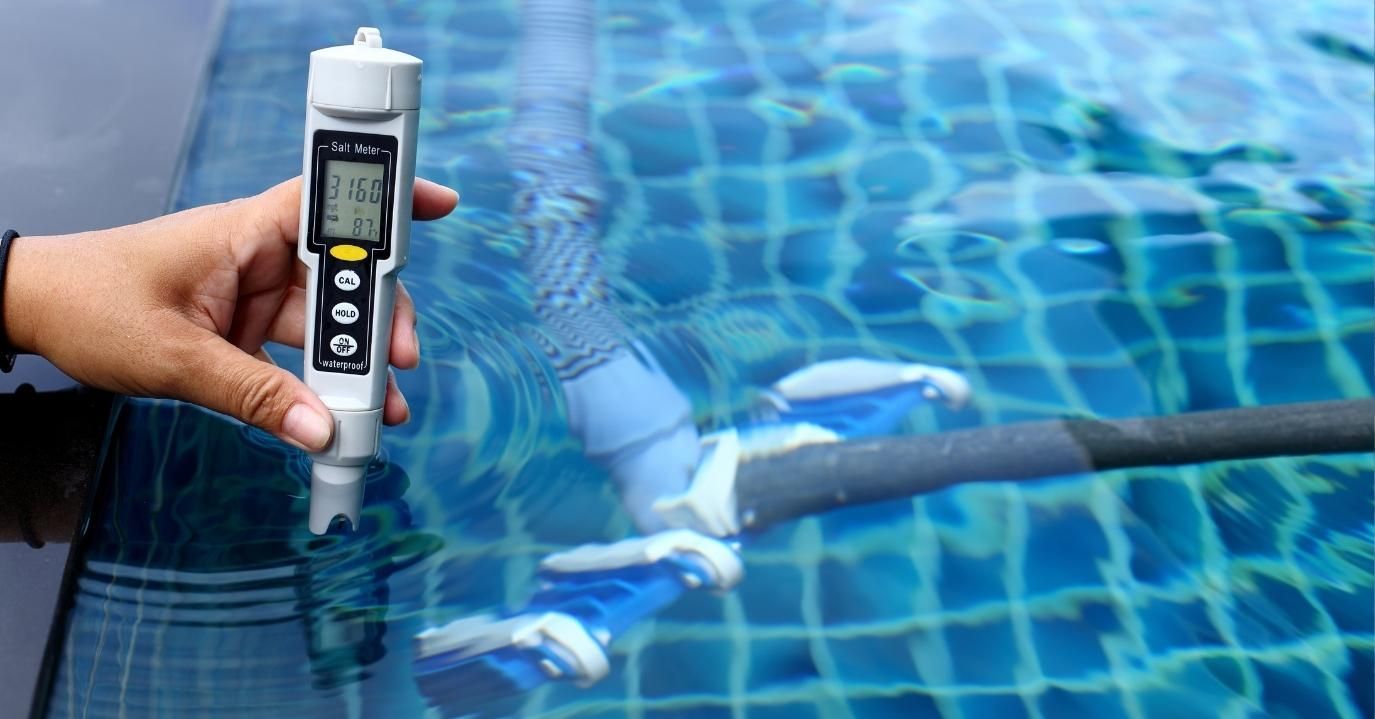
Cons of a Salt Water Pool
1. Higher Initial Installation Cost
Salt water pools require a salt chlorine generator, which adds significantly to upfront expenses. This cost can be a hurdle compared to the lower entry point of traditional chlorine systems. In many salt water pool vs chlorine discussions, budget is the first drawback noted for salt systems.
2. Risk of Corrosion
Salt is naturally corrosive and can damage certain pool equipment, metal fixtures, and even surrounding surfaces if not carefully managed. Over time, this may lead to more frequent repairs or replacements. This reality can outweigh some of the benefits of salt water pool setups when considering long-term durability.
3. Specialized Repairs and Maintenance
When issues arise, salt chlorine generators and their components often require skilled technicians. Repairs can be more expensive and less convenient than the straightforward fixes of chlorine pools. This complexity is one factor behind why pools have chlorine as the long-standing standard.
4. Higher Energy Usage
Salt water systems use generators that run on electricity, which can add to monthly utility costs. While not extreme, this increase can make operating expenses higher than anticipated. It’s another trade-off to weigh in the salt water pool vs chlorine decision.
What Is a Chlorine Pool?
A chlorine pool uses manually added tablets, granules, or liquid chlorine to disinfect the water and control bacteria, algae, and other contaminants. This classic method has remained popular for decades because chlorine is cost-effective, widely available, and highly reliable. When asking how to tell if a pool is salt or chlorine, a chlorine pool can usually be identified by the absence of a salt generator and the need for regular chemical dosing. While it requires more handling, many pool owners prefer chlorine systems for their proven performance and ease of upkeep.
Why Do Pools Have Chlorine?
Pools have chlorine because it is one of the most effective and reliable sanitizers for keeping water safe to swim in. Chlorine kills harmful bacteria, viruses, and algae while also helping to maintain clear, balanced water. Its affordability, availability, and proven track record explain why pools have chlorine as the standard treatment method for decades. Even with newer alternatives like salt water systems, chlorine remains the foundation of pool sanitation worldwide.
Pros of a Chlorine Pool
1. Lower Upfront Costs
Chlorine pools are typically less expensive to install since they don’t require a generator or specialized equipment. This makes them an appealing choice for those seeking a simpler setup. In the salt water pool vs chlorine comparison, initial cost is often where chlorine stands out.
2. Widely Available Chemicals
Chlorine can be purchased at nearly any pool supply or home improvement store, making upkeep more convenient. Pool owners don’t have to rely on specialized systems or technicians to keep water safe. This accessibility helps explain why pools have chlorine as the standard for so many years.
3. Strong and Reliable Sanitization
Chlorine is one of the most effective disinfectants for killing bacteria, algae, and harmful microorganisms. It works quickly to restore balance even after heavy use or unexpected contamination. This reliability often tips the salt water pool vs chlorine debate in chlorine’s favor.
4. Easier to Repair and Maintain
Since chlorine systems don’t require a generator, repairs are often simpler and less costly. Technicians are more familiar with traditional chlorine setups, which means service is easier to find. This straightforward maintenance shows why pools have chlorine as a trusted option.
5. Fast Shock Treatments
Chlorine pools can be shocked quickly to address sudden water quality issues, such as after storms or parties. This rapid treatment capability helps restore clarity and safety almost immediately. It’s a practical advantage highlighted whenever comparing a salt water pool vs chlorine system.
6. Better for Cold Climates
Chlorine remains effective even in cooler water, making it ideal for regions with shorter swim seasons. Salt systems can sometimes struggle in lower temperatures, while chlorine keeps sanitation consistent year-round. This difference is another reason why pools have chlorine as the go-to method in many areas.
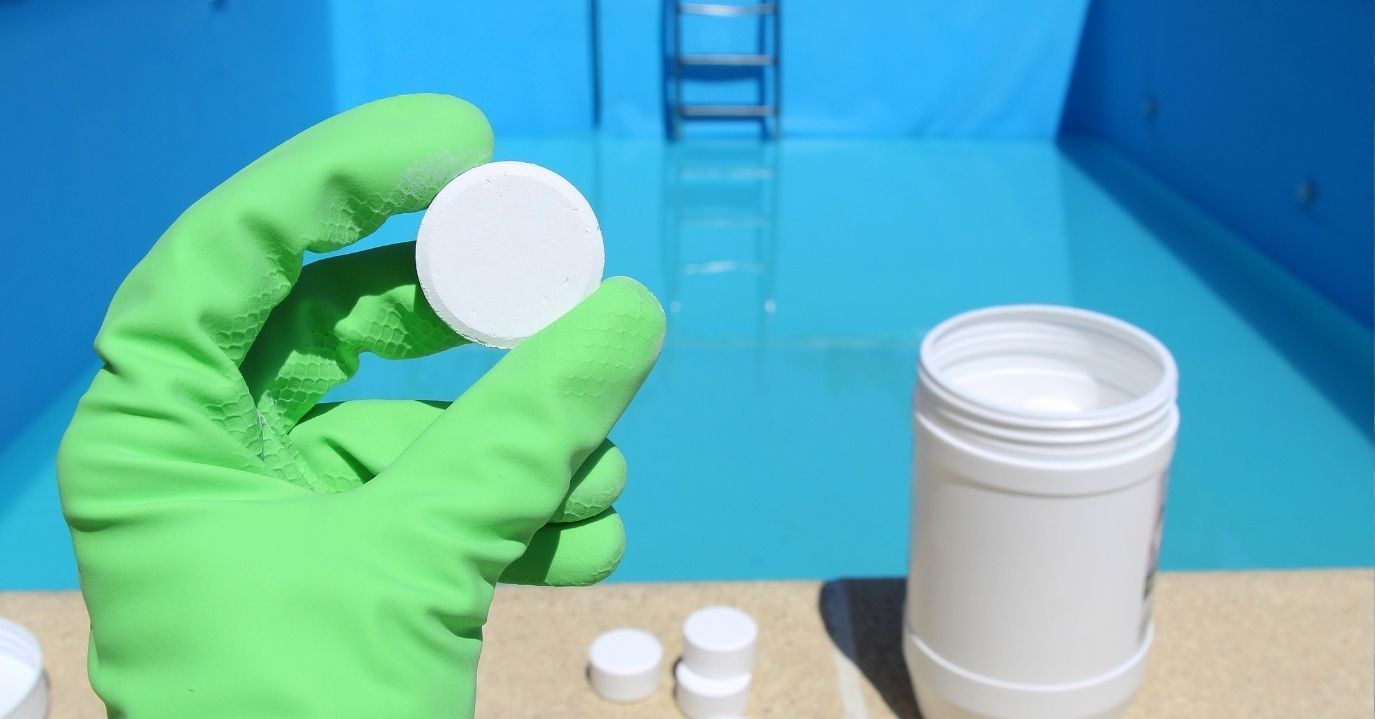
Cons of a Chlorine Pool
1. Ongoing Chemical Costs
Traditional chlorine pools require a steady supply of tablets, granules, or liquid, which adds up over time. These recurring expenses can surpass the savings from a lower installation cost. When comparing a salt water pool vs chlorine, long-term chemical costs are often a deciding factor.
2. Strong Odor and Irritation
Chlorine can create a sharp smell and cause red eyes, dry skin, or faded swimsuits when levels fluctuate. Swimmers often view this as one of the biggest drawbacks of chlorine-based pools. This is why many highlight the comfort-focused benefits of salt water pool systems as an alternative.
3. Fluctuating Water Quality
Because chlorine is added manually, levels can swing too high or too low without consistent monitoring. Imbalances can lead to unsafe swimming conditions or cloudy water. This challenge is a common reason why pools have chlorine debates continue when new technology offers steadier options.
4. Chemical Handling and Storage Risks
Chlorine products must be stored safely to avoid dangerous fumes, spills, or accidental exposure. Handling them regularly requires caution and proper protective steps. Many homeowners weighing a salt water pool vs chlorine system cite this responsibility as a reason for exploring salt-based alternatives.
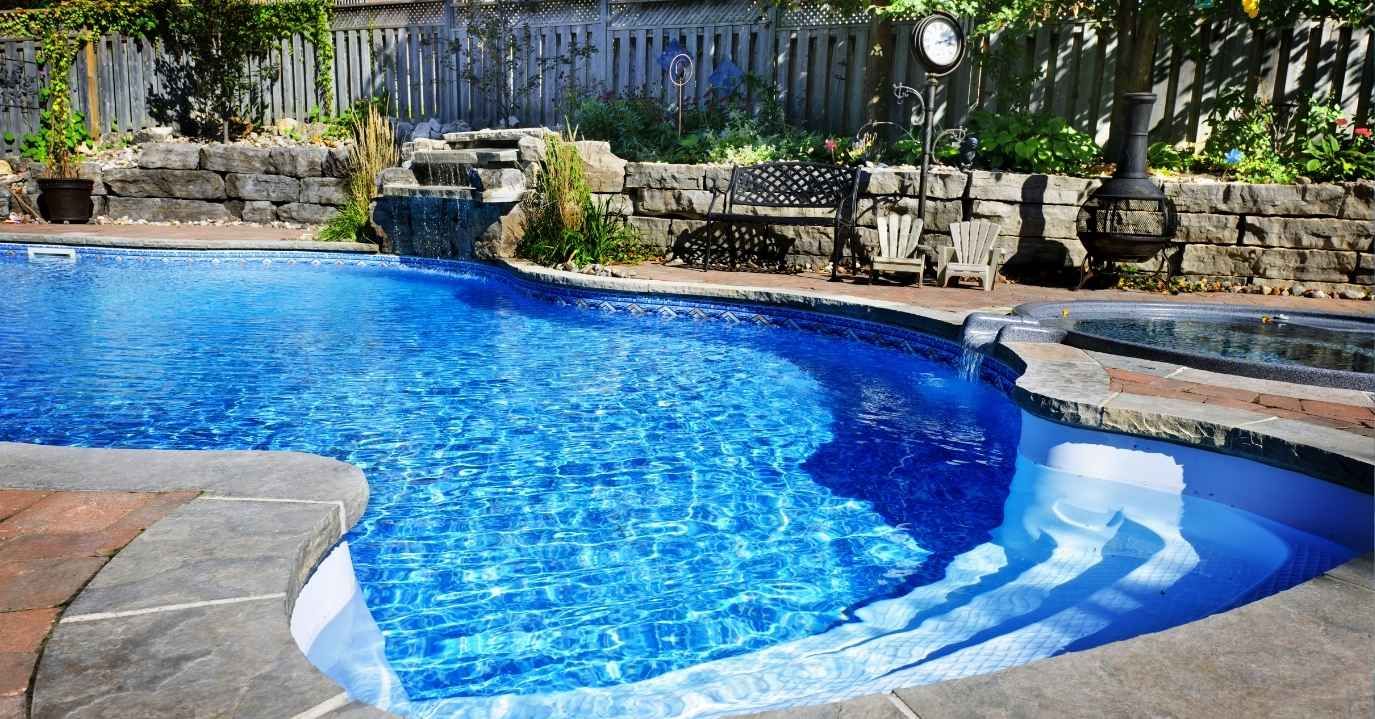
Which Is Better: Salt Water or Chlorine?
Deciding between a salt water or chlorine pool depends on budget, lifestyle, and maintenance preferences rather than a single “better” choice. Salt water systems provide softer water and less day-to-day chemical handling, while chlorine pools offer lower upfront costs and straightforward repairs. When weighing these options, it helps to understand performance, comfort, and long-term costs side by side. For anyone learning how to tell if a pool is salt or chlorine, identifying equipment like a salt generator or noticing differences in water feel can also reveal which system may better align with personal priorities. Ultimately, the right choice comes down to balancing convenience with cost over the life of the pool.
How Pool Choice Affects Resale Value
A pool’s return on investment (ROI) can range between 5% and 56%, and when selling a home, buyers often weigh not just the visual appeal but also the long-term costs and upkeep tied to the system. The choice of a salt water pool vs chlorine setup can directly shape buyer perception, maintenance expectations, and overall property value in different ways. Here are five key factors that highlight how each pool type may impact resale:
1. Buyer Perception of Modern Upgrades
Salt water pools are often viewed as a modern upgrade that appeals to buyers who want convenience and comfort. Many see them as a premium feature due to the reduced chemical handling and softer water feel. Highlighting the benefits of salt water pool systems during resale can make a property more attractive.
2. Maintenance Expectations
Buyers familiar with chlorine may prefer its simplicity, while others could be deterred by the idea of frequent chemical handling. A salt water system may impress those seeking lower day-to-day effort, but it can raise concerns about generator repairs. This balance reflects why pools have chlorine as the long-standing default.
3. Long-Term Costs for Owners
Chlorine pools come with ongoing chemical expenses, while salt water pools often demand higher initial investments but lower chemical costs later. Buyers doing the math may value the predictable routine of chlorine or the savings of salt systems over time. This calculation often drives comparisons in the salt water pool vs chlorine debate during home sales.
4. Equipment and Durability Concerns
Salt water pools can raise questions about corrosion or wear on ladders, heaters, and fixtures. In contrast, chlorine pools are typically less harsh on equipment but may involve more frequent water-balancing. These durability factors often influence whether buyers see the benefits of salt water pool features as outweighing the risks.
5. Regional Market Preferences
In warmer climates, salt water pools may be seen as more desirable for comfort and frequent use. In colder regions, chlorine systems often make more sense due to simpler winterizing and fewer generator concerns. Regional trends help explain why pools have chlorine in certain areas while salt water options dominate in others.
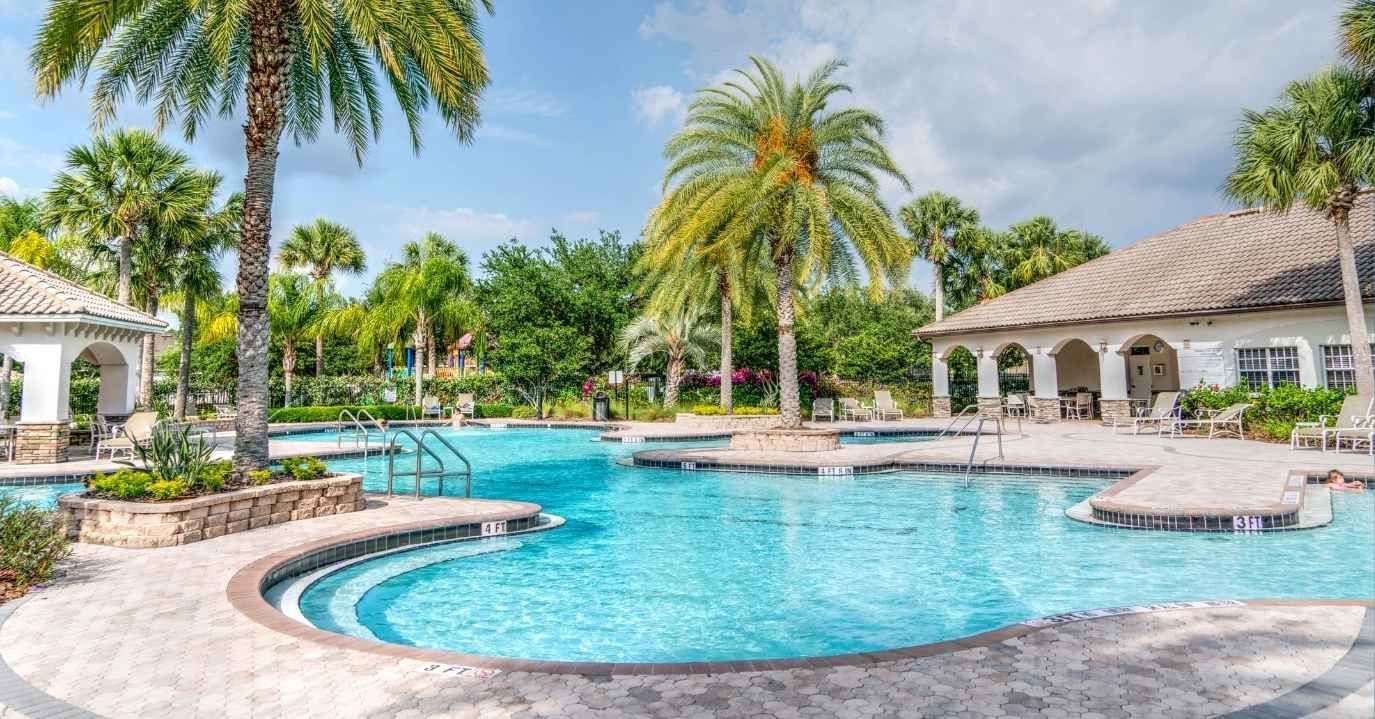
Frequently Asked Questions (FAQs)
What is the healthiest pool to swim in?
The healthiest pool is one that maintains balanced water chemistry and consistent sanitization, whether it uses chlorine or a salt water system. Salt water pools are often praised for being gentler on skin and eyes, while still providing safe levels of chlorine through electrolysis. Chlorine pools, on the other hand, remain effective and safe when properly maintained. Ultimately, the healthiest option depends on how well the system is managed rather than the type alone.
What is the least toxic pool system?
Salt water pools are generally considered the least toxic because they reduce the need for direct chemical handling and keep chlorine levels more stable. This minimizes harsh odors and lowers the chance of irritation for sensitive swimmers. While both systems rely on chlorine, salt systems use a softer, automated approach. This difference is often highlighted in the ongoing salt water pool vs chlorine debate.
Do I need to add chlorine to a saltwater pool?
Yes, salt water pools still require chlorine, but it is generated automatically by the salt chlorine generator. The generator converts salt into chlorine through electrolysis, maintaining sanitation with fewer fluctuations. Occasionally, supplemental chlorine may be needed during heavy use or after a storm. This reality helps explain why pools have chlorine as the base sanitizing agent, regardless of system type.
How do you know if your pool needs salt?
A pool typically signals the need for more salt when chlorine production decreases, the water turns cloudy, or a generator’s indicator light shows low levels. Testing the water with a salt meter or test strips provides an accurate reading. Salt water pools usually require a range of 2,500–3,500 ppm for optimal performance. Knowing this range ensures the system works effectively, much like understanding why pools have chlorine clarifies its role in safe swimming.
What happens if the salt level is too low in the pool?
If the salt level is too low, the generator cannot produce enough chlorine to sanitize the water properly. This leads to cloudy water, higher risk of bacteria or algae, and an overall drop in water quality. Swimmers may also notice the water feels less soft or refreshing. Correcting the balance by adding salt quickly restores the system’s ability to keep the pool safe.
Is a salt water pool better than chlorine?
Not necessarily—it depends on your priorities. Salt water pools provide softer water that’s gentler on the skin and eyes, and they reduce the need for handling chemicals every day. However, they cost more to install and may require specialized repairs.
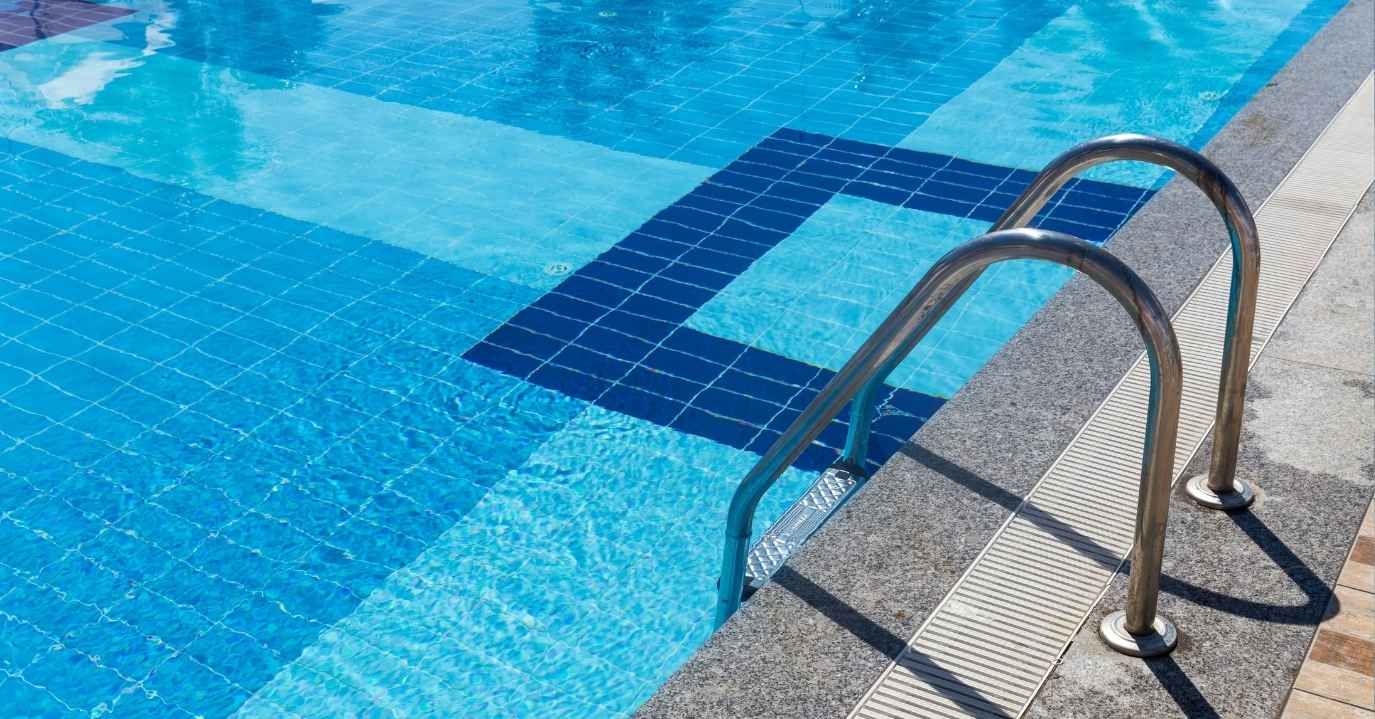
Build with Confidence — FJV Construction Services in Danbury, CT
At FJV Construction, we take pride in transforming backyards across Danbury, CT, with custom pool installations, renovations, and reliable maintenance solutions built to last. Our team combines craftsmanship, attention to detail, and years of hands-on experience to deliver results that elevate outdoor living spaces. Whether it’s designing a new inground pool or restoring an existing one, every project is handled with care and precision.
Reach out today and let FJV Construction bring your vision to life with a pool built for lasting enjoyment.


